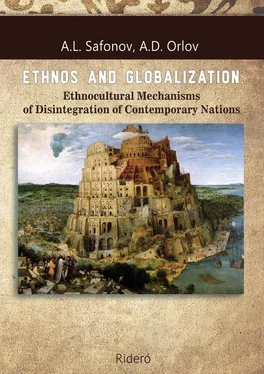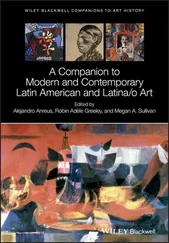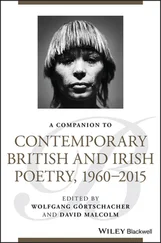During the late medieval period, nations assumed new social meaning. Although chronicles and documents call certain peoples and the population of historical provinces “nations’, starting from the fifteenth century the term begins to assume yet another meaning, closer to its contemporary use: the concept of the “German nation’ appears, albeit without lower classes included in it.
At the same time, the concept of “nation’ keeps obtaining new meanings. In universities, fraternity-like student corporations were called nations. 180 180 Nikolsky, V. S. University autonomy and academic freedom // Higher Education in Russia, 2008. #6 – Р. 147—155.
Ex-territorial social and political institutions typical of the Middle Ages, such as cathedrals, religious orders combining knighthood and spirituality (Maltese, in particular), guilds and other corporate organizations were also based on nations. Therefore, nations were territorial entities of corresponding social institutions, linked to certain kingdoms, dukedoms and large historical provinces.
Thus, the use of the concept of “nation’ in the Middle Ages shows that this term’s semantics, albeit different from today, were closely related to the developed and rationally organized political and social institutions inherited from the empire of Rome. These institutions were contrasted with more primitive social structures characteristic of the geopolitical periphery of the Christian world of the time.
Initially used to distinguish the civilized population of the geopolitical nucleus of the empire from tribes on the barbaric periphery with their different cultures, the concept of “nation’ was used during the late Middle Ages and the Renaissance to designate rationally organized social groups often corresponding to territorial division into political entities and historical provinces.
According to Ziegler, during the Middle Ages,
Natio is a union with a purpose, a local administratively subgroup, as a faction, a governmental unit, etc. This word does not have the full meaning as a representative political subdivision. It does not mean a predetermined form of the community, does not contain any indication toward the chief line of the social connection or division. 181 181 Ziegler, H. O. Die moderne Nation. Ein Beitragzur politischen Soziologie. Tubingen, 1931. – Р. 23.
According to Yury Granin,
…evolution of the meaning of the concept “nation’ in the Middle Ages corresponded to the evolution of the European society of the time, with its typical corporate (guild and estate) social structure and feudal fragmentation, which preserved local communities as they were and prevented large economic and cultural spaces from being created. That is why the next stage of the evolution of understanding of what “nation’ means was historically linked to the transition of the economic sphere to the capitalist (industrialized) method of producing material goods. In terms of politics, this phenomenon was linked to the process of the formation of centralized bourgeois-democratic states in Europe, which in the course of time united their territories’ multiple linguistic and ethnic groups into relatively homogenous communities, culturally and politically. 182 182 Granin, Y. D. Ethnoses, Nation State and Formation of the Russian Nation. Experience of Philosophical and Methodological Research. – M.: IF RAN, 2007. – p. 11—12.
In terms of collective consciousness, the objective process of the dissolution of feudalism and the inclusion of village communities and social lower classes into the economic, political and cultural life of the state manifested itself in a steady contrast between the concepts of “nation’ and “people’.
Initially, only nobility and aristocracy by birth, as well as clergy, claimed the right to be part of the “nation’, thus limiting “nation’ to social elites. The third estate’s claims to being part of the nation signified a watershed moment followed by the crisis and fall of the feudalism.
So, in the eighteenth century, the third estate, gaining strength, did not want its members – traders, financiers, lawyers and freelancers – to be part of “people’, believing it deserved to be part of the “nation’ alongside nobility and clergy. In connection with this, Kozing notes that as early as Abbé Sieyès’ What is the Third Estate? the bourgeoisie was unequivocally considered a “nation’ – that is, “included in elites and separated from the peasantry which remained a tax-paying estate that did not participate in the political life”. 183 183 Kozing, A. Nation in History and Contemporary Times (Research in Connection to Historical-Materialistic Theory of the Nation). M.: Mysl’, 1978. – p. 39.
At the same time, one cannot help but notice that the evolution of the concept of the nation, from Rome with its developed civil institutions to the Middle Ages and then to our times, serves as an adequate reflection of the evolution of nation as a social group whose main feature is direct (albeit passive) involvement in the functioning of the social and political institutions of the state and the civil society.
In Rome, with its developed civil society, the whole population of the empire was in one way or another involved in the activities of the state institutions, and the concept of the nation included all citizens of Rome. At the same time, the barbaric periphery of the empire, which was at the stage of tribal unions and the dominance of tribal relations, was objectively closer to tribes ( gens ).
During the medieval period, the concept of the nation and the social class that considered itself part of it understandably narrowed down to the elite of the stratum, linked to the political and church power and state governing. Thus, medieval nations were relics of the late Roman Empire’s civil society, surrounded by the seas of natural economy and tribal archaisms. Nevertheless, the concept of the nation remained as the name for a system-building social group, defining the system of power (political) relations.
The consequent growth of cities, professions and trade was followed by the justifiable expansion of the meaning of the term, but this expansion was an objective reflection of the increase of the population and of the influence of the social group, comprising the civil society of the time with its stratified limitations.
The beginning of the Industrial Revolution and the increase in importance of the third estate was followed by demands to recognize it as a “nation’ – that is, to grant it civil rights corresponding to its role in the life of the society. Correspondingly, bourgeois revolutions of the seventeenth and eighteenth centuries removed obstacles to the expansion of the nation as a concept and as a social group, up to the size of the whole population of the state.
The final fixation of the concept of nation as a structured, culturally and psychologically integrated community of the subjects of the same state is linked to outstanding German philosopher Georg Hegel, who provided the most complete and system-like description of the sociophilosophical problem of the formation and evolution of nations among his contemporaries. In fact, Hegel introduced the very notion of the “nation’ as a basic category in sociophilosophical discourse.
The sociophilosophical doctrine of Hegel is based on the premise that historical development of humankind is predetermined by the evolution of a “global spirit’, which expresses itself through social manifestations of the “spirit of the nation’ (the “spirit of the people’).
According to Hegel, every nation is characterized by the development of the “spirit of the people’, which manifests itself in social forms and “is a certain spirit that creates an obvious, factual world, that… exists in its religion, in its cult, its customs, in its state system and its political laws, in all its institutions, in its actions and activities”. 184 184 Hegel, G. Works, V. VIII. 1935. – p. 71.
Читать дальше












